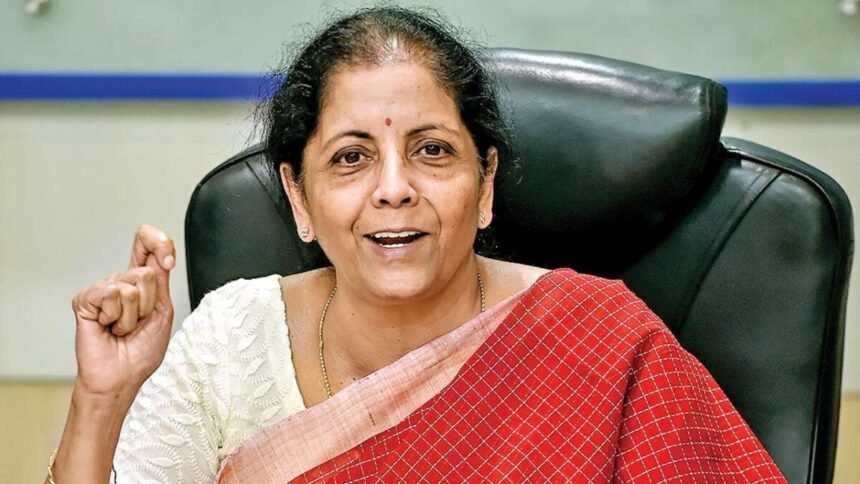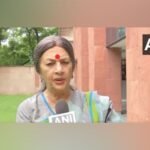Union Finance Minister Nirmala Sitharaman recently made a visit to the Srimantapur Integrated Land Port (ICP) in Tripura’s Sepahijala district, a significant hub for trade and passenger movements in the region. Having inaugurated the ICP in 2016 during her tenure as the Minister of State for Commerce, she returned to witness its growth and impact on the local economy. Additionally, Sitharaman also inaugurated the Goods and Services Tax (GST) building and held discussions with officials from the customs and land ports authority of India (LPAI) to explore further opportunities for enhancing bilateral trade volume and supporting businesses in the area.
The Srimantapur ICP, located in Sonamura subdivision and strategically situated on the banks of the Gomati river, plays a crucial role in facilitating seamless trade activities and easing the movement of passengers. The Finance Minister expressed her delight in witnessing the positive outcomes generated by the ICP since its inception. The ICP has become a vital gateway for trade, providing traders and businesses with streamlined processes for importing and exporting goods.
During her visit, Sitharaman interacted with the officials of customs and LPAI, gathering insights into the current trade volume and understanding the challenges and opportunities that lie ahead. The discussions centered on measures to further boost trade, streamline customs procedures, and augment infrastructure to support increased business activities.
The implementation of the GST has been a significant milestone for India’s economic reform. Sitharaman’s inauguration of the GST building in Tripura further emphasizes the government’s commitment to this reform. The GST has unified the Indian market by replacing multiple indirect taxes and has made it easier for businesses to navigate the complex tax landscape. The Finance Minister’s presence at the inauguration reflects the government’s continued efforts to strengthen the tax system and enhance ease of doing business in the country.
The meeting with customs and LPAI officials was crucial in understanding the challenges faced by traders and exploring opportunities to enhance cross-border trade. Triangular trade between India, Bangladesh, and other Southeast Asian countries has shown immense potential for growth, and the Srimantapur ICP serves as a critical connection point for such trade routes. By understanding the trade dynamics and constraints, the Finance Minister aims to develop targeted policies that encourage and facilitate these trade networks.
The visit also highlighted the government’s commitment to promoting the northeastern states’ economic growth and development. By leveraging the region’s strategic location and its proximity to neighboring countries, such as Bangladesh, Tripura has the potential to emerge as a vital trade hub in India’s Act East Policy.
The Srimantapur ICP has provided a much-needed impetus to the region’s economy, encouraging both domestic and international trade. Local businesses have benefited from improved access to markets and streamlined customs procedures, leading to increased export opportunities for indigenous products. Moreover, the ICP’s integration with a jetty on the Gomati river has enhanced connectivity and eased transportation of goods, further driving economic growth.
Finance Minister Nirmala Sitharaman’s visit to the Srimantapur Integrated Land Port (ICP) in Tripura marks a significant milestone in the region’s economic development. The ICP’s role in facilitating trade and passenger movements has been commended, and the Minister’s engagement with customs and LPAI officials reflects the government’s commitment to supporting businesses and enhancing trade infrastructure. With ongoing efforts to strengthen economic ties with neighboring countries and streamline trade processes, the region holds the promise of becoming a key player in India’s economic growth story.









